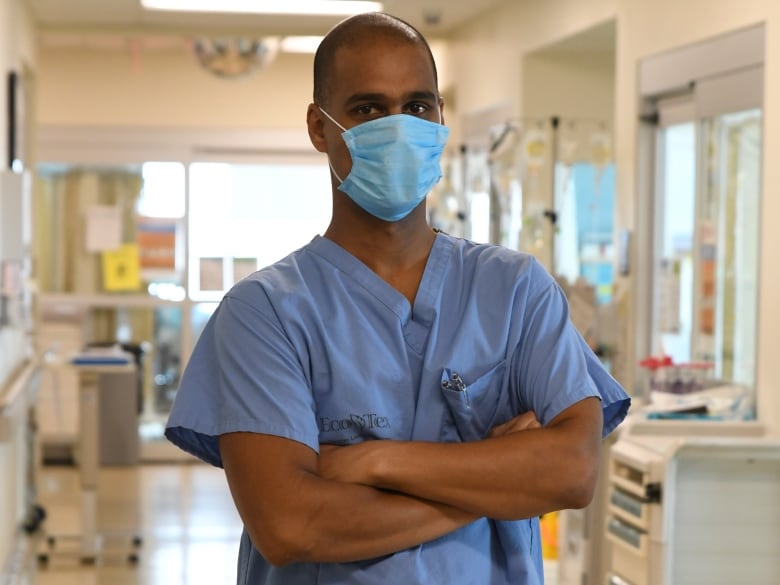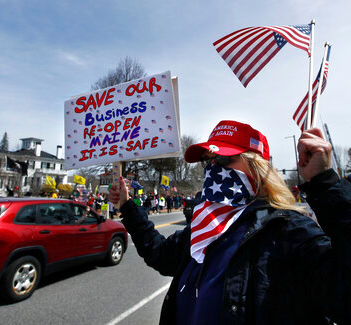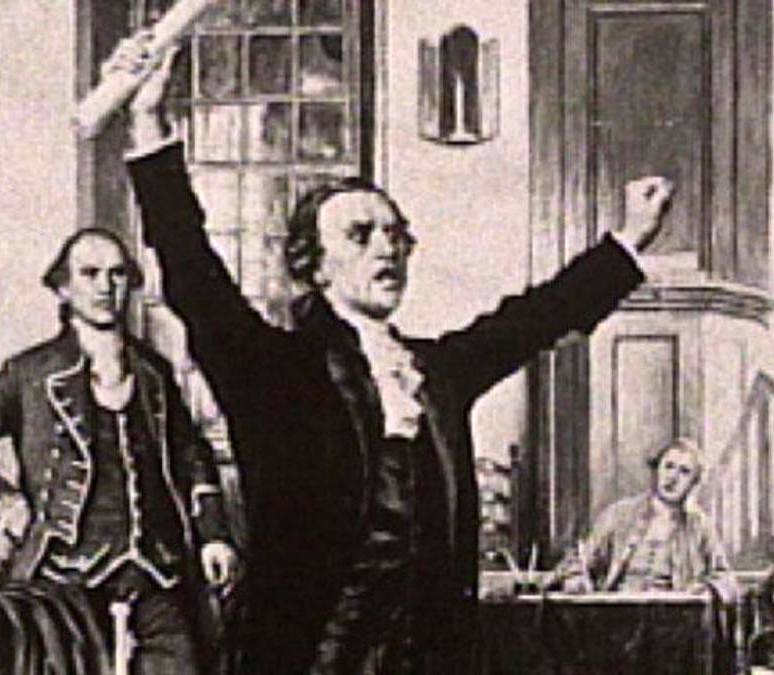
The point-of-view of the camera shows us whisking through a door with a “restricted access” sign on it. Around the gurney-in-motion, doctors, nurses and orderlies wear full personal protective gear, as we zoom down a hospital corridor. The CBC News reporter voiceover describes the medical staff coping with Markham-Stouffville Hospital’s COVID-19 case load.
“It’s like (the staff) is going to war,” reporter Wendy Mesley says. “Only they never know if they will win or lose.”
On camera, following the intubation procedure Mesley has taken us to, she interviews Dr. Anand Doobay, chief of medicine at Markham-Stouffville. She asks him what he thinks of those campaigning to undo the provincial emergency measures, to let people out of their homes again, onto the streets and back to work.
“It’s almost an insult to what we’ve been doing. We are working so hard to get these people back to their families,” and if the measures are lifted, Dr. Doobay points out, it will undo all the lifesaving that’s been done.
I offer that news story happening just down the road from us, as a kind of litmus test for Canadian democracy. How well or badly are we performing during this COVID-19 pandemic? How healthy is our system of rights and freedoms in this crisis? And, as citizens wonder what’s next, is it fair to claim that the rights of society are trampling the rights of individuals?
There’s plenty of disagreement. Over the past four weeks, all 10 provinces and three territories have enacted “state of emergency” legislation. Except for essential services – hospitals, food supply and service, drugstores, etc. – provincial governments have shut down the country, on the recommendation of health professionals “to flatten the curve.”
But as the COVID curve flattens, should individual rights have priority? I’ll get to the U.S. shortly, but if one listens to the Canadian Civil Liberties Association, the federal and provincial governments have all fielded complaints about the way police have enforced “state of emergency” rules.
The Toronto Star cited a Toronto lawyer who got a $750 ticket for doing chin-ups in a city park, a father whose sons rollerbladed in an empty parking lot, and a couple lingering on park benches. Roger Varley, a respected fellow journalist, argued in his Cosmos column (April 2) that yes, extraordinary times call for extraordinary actions, but “without opposition … governments can seize unprecedented power over the people and enforce that power.”
“In moments of high anxiety,” the CCLA’s Michael Bryant told the Star, “the hubris of power takes over in a way that is insatiable.”

In other words, in an emergency, law enforcement can lose its grey middle, in favour of either black or white extreme. And that goes for what people infer from the law too. This week, in Ohio, Minnesota, Iowa, Pennsylvania, disgruntled conservative groups – most ignoring physical distancing and some openly carrying weapons – took to the streets calling on the U.S. government to overrule state stay-at-home health protocols, demanding they be allowed to go back to work. They argued the lockdown was undemocratic and defied their individual freedoms.
Meanwhile, in Canada, the Prime Minister closed the borders to international travel, offered guidelines for closing public venues, and announced financial assistance programs to workers, businesses and public health to keep cash in Canadians’ pockets and support the fight against COVID-19.
And while it took some days to convene the House of Commons to legislate all this, Parliament did vote on such measures democratically. And to Roger’s point, credit goes to the federal Opposition for preventing carte-blanche federal powers indefinitely. That is, the democratic process ensured the protection of wages for Canadian workers, but bridled open-ended, indefinite taxation by the federal government.
At this writing, the House of Commons has voted/agreed to hold one in-person session and up to two virtual sessions a week.
Stateside, it’s the Wild West. On one hand, the U.S. president is tweeting to “liberate the states of Minnesota, Michigan and Virginia,” a.k.a encouraging demonstrators as “very responsible people” to defy stay-at-home orders with civil disobedience. Trump went so far as to suggest that Virginia legislators are stubbornly maintaining the lockdown in order to ultimately take away the Second Amendment (their right to own guns).
On the other side, health-care experts claim it’s too soon to reopen American cities to business as usual without a guarantee of ample testing, treatment and isolation; such free movement, they say, will let loose a second pandemic wave.

Where is democracy in all this? Ironically, it was in the state of Virginia, during the U.S. revolution, that Patrick Henry called his fellow statesmen to action, to join the American Revolution in 1775, with the words, “Give me liberty, or give me death.”
If pressed, I’d suggest that Dr. Anand Doobay and other front-line workers trying to save lives at Markham-Stouffville Hospital and elsewhere in Canada might wonder whether your liberty to reopen might hasten the deaths of too many others.